Australians are some of the most enthusiastic coffee drinkers in the world, with individuals consuming an average of 1.91 kilos of coffee every year (statista.com). That’s a lot of beans and a huge number of incredibly hard-working coffee machines.
Whether you’re looking to open a cafe or restaurant, or you need to upgrade your coffee machine, the model you select is a decision that’s not to be taken lightly. Lattes and cappuccinos can be a key profit driver for your business, which means this coffee machine is perhaps the most important piece of equipment your venue will own. For this reason, you need to make sure it is fit for purpose.
We have compiled this thorough guide to help you understand the difference between the various coffee machine models, features and brands. Our goal is to help you figure out which is the best commercial coffee machine to buy for your business.
This buyer's guide will cover the important features to look out for in a commercial coffee machine, the model that's right for you, and when it makes sense to buy a used commercial coffee machine. We’ve drawn on information from our expert team who get up close and personal with all the best commercial coffee machine brands on a daily basis.
Here’s what our commercial coffee machine guide covers
-
Commercial coffee machine terminology
-
What are the main things to consider when buying a commercial coffee machine?
-
Automatic versus semi-automatic or manual coffee machines.
-
Second Hand - New or used?
-
How much does a coffee machine cost?
-
Some of the Better coffee machines on the market.
-
Top questions to ask before you buy
-
Commercial coffee machines - FAQ

Commercial coffee machine terminology
Before you look at which commercial coffee machines are best and why, it’s important to know the ‘language’ of your commercial coffee machine.
Here are some terms to help you get started: Basket: Shaped like a very small metal cup without handles, this is the metal filter coffee is poured through. The shape of your coffee machine’s basket plays an essential part in the coffee brewing process and can impact the taste of your espresso. Boiler: Your commercial coffee machine’s boiler stores water, heats it and maintains it at a set temperature. With a dual boiler, there is one boiler used for brewing coffee brewing and another to create the steam that froths milk. Burrs: The grinder that comes with your coffee machine will include burrs to grind coffee beans into usable coffee grounds. Dose: A ‘dose’ is a single shot of coffee. Doser: This is the part of your coffee machine setup that distributes ground coffee into the portafilter basket (see above and below). Gravimetrics: A fancy word for ‘weight.' When a machine uses gravimetrics, it measures coffee doses by weight instead of volume.
Grinder: The machine that breaks beans down into the ground coffee that’s used to make espresso. Group: This refers to the number of coffees which can be created at once. A 2 group coffee machine delivers four doses of coffee at the same time. A 3 group coffee machine can make six single-shot coffees and a 4 group machine will pour eight doses simultaneously.
Group head: The group head is the part of your machine that fresh coffee is poured through. Baristas attach the portafilter to the group head, press a button for the required dose and wait for the magic to happen. Heat exchange: A single boiler coffee machine is often referred to as a ‘heat exchange’ machine. With this machine, the water running through the heat exchanger is heated by the steam boiler before it is used to brew the coffee. Portafilter: Your barista will top up the portafilter with ground coffee before connecting it to the machine to pour an espresso. This is the part with the handle; the basket sits inside.

What are the main things to consider when buying a commercial coffee machine?
With a huge variety of commercial coffee machines for sale, how do you choose the best one for your venue? These are some of the factors to consider…
Type of coffee
Selecting a coffee machine has an almost 'back-to-front' process. Whilst with many other industries - transport, construction, beauty - the machine is bought first, with the service coming second, it's the opposite for coffee.
It's as simple as this: you need to know what type of coffee you want to produce, and then you need to find a machine that will achieve the result.
This means considering whether you wish to be top end, middle range, or for the masses. You will have already considered this well before opening, as you place yourself either as a boutique coffee shop with an emphasis on design and specialty coffee blends and single origins, or a bustling commercial venue looking to churn out hundreds of coffees each morning.
What are you looking for in a cup? Something to appeal to customers with a discerning palette? Or something economical that will appeal to the masses? Asking these questions is crucial before choosing a machine.
Find a roaster.
Once you've decided what type of coffee you wish to produce, you need to choose which roaster you will go with. Highly recommended are our partners, Capristo Espresso, which produce award winning beans working alongside of an internationally recognised Roaster. However, if you are heading to market with no clue, call chione.com.au for an in-depth discussion around this topic.
They will be able to fill in the gaps between what type of coffee you want to produce, and what type of bean and machine will achieve that. Your roaster will be the missing link between your coffee vision, and what brand of machine will produce it - they will be the ones to make the best recommendation possible.
Venue size, staff numbers and customer volume.


Coffee shop and cafe revenue was predicted to reach $5 billion in Australia in 2020*
Customer expectations and premium vs ‘workhorse’ commercial coffee machine models
Choosing the best commercial coffee machine is a little like choosing a new car. Everyone will have an opinion on what’s right for you, but you need to consider the features you really need and the job that needs doing.
A premium commercial coffee machine is like a Maserati or Mercedes Benz. These models look impressive and use high-end features which can deliver a premium, consistent result. If you’re serving upmarket or highly discerning clientele, you’ll need a machine like this to impress, meet expectations when it comes to flavour and keep up with a high number of orders.
But that’s not to say your venue can’t make profits with a hardworking, reliable ‘Toyota’ of a coffee machine. Middle-of-the-road models can still produce a quality cup of coffee and you’ll save money on the purchase.
Then there are cheaper or second-hand commercial coffee machines. For hotel bars or venues which don’t rely on coffee, you can potentially get by with a low-cost machine that’s made by a brand you have never heard of.
Be aware! As with second-hand cars, you need to do your research on used commercial coffee machines. When you choose a new machine, it will come with a warranty, whereas most second - hand commercial coffee machines will not.
Fortunately, CHIONE is a little different. We have all used equipment refurbished, and it will come to you with a warranty. This means you can bring down the cost of your machine without sacrificing quality and durability.
Size and weight

You’ll need to make sure you have the right commercial coffee machine for your bench space and strength.
You don’t want a machine that is perched precariously and puts people’s safety at risk. Similarly, you should avoid purchasing a machine that your bench can’t hold.
Check size dimensions and weight details before you buy a commercial coffee machine.
Settings, features and functionality
Understanding the settings, features and functionality your venue requires and the ones your baristas prefer will also help you choose the best commercial coffee machine for your venue.
One feature you’ll discuss with your dealer or roaster is single vs double boiler machines. The added benefit of upgrading to a double boiler machine is that you have separate boilers for steam and brewing coffee. As a result, your coffees will be prepared at a temperature that does not fluctuate. This reduces the risk of burnt beans and will result in happy customers whose coffee tastes the same every time.
Then there are all the additional features like portafilters, baskets, group heads, grinders and steam wands. Talk to your dealer about how these elements will work together to deliver a consistently high-quality cup of coffee. It’s also a good idea to speak with your top barista about the features of a commercial coffee machine they prefer.
Depending on where you are in Australia, your commercial coffee machine’s water filters may be a key component of the quality beverages you produce so this is a feature you might also need to discuss with your dealer. Many venues in both Adelaide and Perth face big problems with their water filters, so being aware of this and regularly replacing canisters is important to remember.
The reason for this is that different states and cities have different ‘water hardness’, which refers to the presence of magnesium and calcium salts in the water. Hard water can ‘scale’ or leave residue which builds up inside your machine and affect its different parts. With a good filter, you’ll be able to minimise the build-up of scale, so speak to your dealer about the water in your area and the quality of the filter that comes with your machine.
Commercial coffee machine wattage
Many espresso machines require higher voltage power levels than a standard wall outlet provides.
Speak to your supplier about the wattage of the machine you want to purchase. You may need to check with an electrician to confirm your premises can handle it or to arrange an alternative solution.
Keep watts in mind if you are operating a food truck and want to use a coffee machine. The one you choose may change the requirements of your generator.
Aesthetics
Is your venue highly image-conscious and looking to attract the attention of cashed-up hipsters? If this is the case, a stylish coffee machine which really stands out can be an important part of your interior aesthetics.
A stunning copper finish, dazzling chrome or sleek brightly coloured machine can be the icing on the cake to set your venue apart from the other cafes in the street.
Some coffee machine models come with the option for custom panels so you can really wow your crowds with your logo or some artwork that matches your venue. Talk to your dealer about this option if you want your machine to be a focal point that impresses your customers.

Insurance, warranty, repairs and cost of parts
Your coffee machine should be covered under your overall business insurance for incidents like theft or accidental damage. Make sure your coffee machine is itemised on your policy so you can make a claim based on its true value.
A warranty on a new machine is essential. If you buy new, you will most likely have a 12-month warranty on commercial coffee machine parts but not on labour unless purchasing a Rancillio machine which comes with Full warranty. Make sure you’re clear on the warranty before you buy; if there isn’t one, consider this a red flag.
When you buy, talk to your dealer about the servicing and repair schedule they recommend. At high volume, your machine is likely to need attention even as often as three or four times per year. For low volume (20 kilos or less), a twice-yearly service should be enough.
Ideally, there will be a servicing and repair specialist nearby who you can call on in an emergency. If not, this could influence your decision on the commercial coffee machine you buy – after all, how much income would you lose if your coffee machine was out of action for a few hours, a day or more?
And remember, when you buy a commercial coffee machine, the cost of parts will factor into your ongoing expenses. Just like servicing a BMW will probably come in at a higher price than a Suzuki, a premium machine may have parts which are more expensive to replace or repair.
Usability and cleaning
The way your staff use your commercial coffee machine should be part of your decision making. If you work with highly experienced baristas, they may expect a certain top-of-the-range machine so they can quickly become the favourite barista in your area.

Before you buy one, take a look at how to clean a commercial coffee machine. The coffee machine you choose should be easy for a staff member to backwash regularly without needing expert supervision.
Look at the accessories such as steam rods and parts; if they’re really fiddly to clean it will be frustrating and the job may not get done properly. Cleaning your machine regularly and thoroughly will reduce the potential need for costly commercial coffee machine repairs.
95% of cafes in Australia are independently owned*
Automatic vs semi-automatic or manual coffee machines
The functionality of your commercial coffee machine will also come into play as you make your decision on what to buy.
You can choose between super automatic, fully automatic, semi-automatic or manual options, depending on the requirements of your venue.
Different commercial coffee machine suppliers have their own ways of categorising machine functionality, but the following will give you a general idea of how to identify the different types of machines.

Super automatic coffee machines deliver coffee to order at the press of a button. There is no need for baristas to grind beans, tamp them into a portafilter or even steam milk.
These machines tend to be purchased by venues which serve coffee as an add-on, not a feature.
Places like delis, motels, bakeries and convenience stores are more likely to choose super automatic coffee machines as they bring an element of convenience. Purchase a good quality super automated coffee machine and any staff member can serve up a cup of coffee with almost no training.
Automatic commercial coffee machines
An automatic commercial coffee machine allows you to deliver consistently good quality coffee from standardised volumes of water.
While the term ‘automatic’ can be interchangeable with ‘fully automatic’ or ‘super automatic’, an automatic commercial coffee machine generally delivers coffee with the help of a ‘flowmeter’. This controls the water being poured through the coffee into the cup.
With most automatic machines, the barista still takes over operating the steam wand and coffee grinder.
Some commercial coffee machines come with a choice of fully or semi-automatic functionality.
Semi-automatic coffee machine
Semi-automatic commercial coffee machines require more hands-on use than fully automatic versions.
These machines come with a separate coffee bean grinder and portafilters which your baristas will use to prepare the coffee. They also have a separate steam wand for heating milk. Most parts in a semi-automatic commercial coffee machine are removable for cleaning and repairs.
The semi-automatic functionality comes from the brewing process itself, which takes place at the press of a button. The barista presses ‘start’ and ‘stop’ to activate the flow of water through the ground coffee beans.
People recommend semi-automatic coffee machines as they still deliver a level of control over the brewing process. If you are looking at this type of machine, you will need a fully trained barista to operate it.
Manual coffee machines
Manual coffee machines tend to only be used by extreme coffee enthusiasts because they are quite labour intensive. Every step of the production process requires effort with a machine like this, including pulling a lever to extract the flavour from the coffee beans.
These machines provide outstanding control of dosing and flavour but tend to be avoided in busy commercial environments due to the extra effort required to produce a latte, cappuccino or long black.
Three in four Australians (75%) enjoy at least one cup of coffee per day, and of those, 28% have three or more cups per day!*
Second-hand commercial coffee machine vs new

However, there are some things to watch out for. One is the location of the machine; in Perth, for example, the water is quite hard and can wear machines out sooner. If possible, you should find out as much as you can about the history of the machine. Ask about its age, if it has had any major repairs and if there is still a warranty on parts before you buy a used commercial coffee machine.
While you may have some luck finding a used commercial coffee machine for sale from a second-hand website, Chione Australia can provide you with more confidence that you're making a solid investment or consult with Chione for solid advice.
How much does a commercial coffee machine cost?
There are so many factors other than price to consider when you’re looking to buy a commercial coffee machine; but naturally, the cost will play a role in your final decision.
To answer the question: ‘How much is a commercial coffee machine?’, you will be looking at $4,000 for a smaller, entry-level machine.
From there, prices vary, extending right up to $15,000 and more for a top-of-the-line machine. If you don’t have the cash to invest this much upfront (or prefer not to tie up capital that you could use for something else), you can explore the financing through Silverchef Finance.
SilverChef offers flexible finance options including Rent-Try-Buy®, where you can choose your commercial coffee machine, rent it for the first year, and get flexible options during and at the end of 12 months. This includes being able to upgrade to a bigger and better model if demand for your coffees grows; or purchase the machine if you know you want to keep it. At the end of 12 months you also have the option to return the coffee machine to us, if it no longer suits you.
As with everything you buy, you get what you pay for with a commercial coffee machine, however you don’t need to overspend on a machine which has features you don't need or can work at a capacity beyond your requirements.
Best commercial coffee machine brands
While there are many brands on the market and everyone has their favourite, these are some of the leading models.
Premium/high end commercial coffee machines
Slayer
Slayer describes itself as the 'ultimate coffee professional’s tool'. Its groovy-looking coffee machines provide an independent brew tank for each group which delivers 'impeccable temperature stability'. There is also a dedicated tank for unlimited steam capacity, and flow rate control that comes via patented needle-valve technology.
Described by many across the industry as the top brand of commercial coffee machine, reviews praise Slayer machines for their brilliant blend of design and functionality. Fans talk about having the utmost control over shots and say it creates 'out of this world' espressos, every time.

Reviews praise Slayer’s potential for personalisation and its cutting-edge needle valve technology. These stylish coffee machines are designed to handle high volume, to deliver unlimited steam and to deliver shots at a steady temperature.
There are few drawbacks to premium commercial coffee machines from Slayer, however you may find the price limiting if you have a strict budget. A single group machine can start from $14,000AUD.
La Marzocco


Arriving at your shopfront from the heart of coffee; Italy, La Marzocco commercial coffee machines tend to have a more functional look, although there are different models available.
When asked if the premium price tag of this machine is worth it, devotees of the 90+ year-old La Marzocco brand cite the readily accessible parts and superior build quality. The lifetime value of these machines can see the purchase price being offset by the durability.
La Marzocco is designed for constant use, with stainless steel components that hide wear and tear. It is easy to operate and has the features you need to produce quality espresso.
Things to know about La Marzocco commercial coffee machines
La Marzocco commercial coffee machines are designed to be barista-friendly, easy to use and long-lasting. They have insulated boilers to help with energy efficiency and offer temperature control features. Programmable features on these machines allow you to control a number of variables with a few button pushes.
These commercial coffee machines require significant financial investment due to their high quality and premium reputation. As they are designed to deliver outstanding coffee, you will need to ensure your baristas know how to use it correctly or it won’t be worth the expense.
Rancillio RS 1
Coffeeing the world since 1927.
Another well-established Italian brand, Rancilio sells espresso machines in 100 countries around the world. Their commercial coffee machines combine functionality, design and performance, making them the ideal all-rounder.
Described as 'innovative and dependable', Rancilio is seen as offering value for money while allowing for fast production of coffees at high volume.
OVERALL CONSTRUCTION • Hand rolled copper steam boiler • Stainless steel group head multi boilers • Fully insulated boiler saves up to 20% energy in standby mode • Brushed stainless steel exterior panels can be easily removed for customisation CONTROLS • Backlit keypads with 4 programmable drink doses and purge or free flow function • Variable steam lever features purge function and two programmable pressure settings • Dual hot water buttons can be independently programmed for dose and Temperature

Synesso

Hand built in Seattle, USA, Synesso coffee machines are another premium option for cafes, restaurants and bars. Machines are designed to be barista-friendly, responsive and dependable, with a focus on temperature stability. The team behind this brand talks about 'always innovating' and aiming for a product that’s respected around the world.
Synesso machines also have raving fans, who talk about the dependability and lack of temperature fluctuations. A no-burn steam wand is a feature some reviews highlight when comparing it to other commercial coffee machines.
Entry/Medium range commercial coffee machines
Wega

You’ll find a lot of good feedback about the Wega, including that it looks great, is easy to clean and makes amazing coffee.
Things to know about Wega commercial coffee machines
Wega machines are known for being a reliable workhorse machine. Touchpads can be programmed, and machines usually come with a couple of different colour options. Fans describe Wega as well-priced and easy to operate.
While Wega coffee machines are highly recommended as a reliable choice, there isn’t usually a full range of customisation available with a Wega commercial coffee machine.
Expobar
These commercial coffee machines come hand built from Spain and are consistent, versatile and cost-effective.
You have a lot of options for coffee machine sizes and functions with Expobar and there is good availability in Australia. Some models can be customised to suit your colour preferences. Smaller models are ideal for venues with limited space and you’ll find a good range of features to produce quality beverages.

Expobar machines are very eye-catching and aesthetically appealing. Some models have energy saver modes, which are ideal for venues which aren’t serving coffee all day. These machines are also recommended for their accessible price-points.
While Expobar machines are popular and highly recommended, there tend to be more compact options and not so many for larger venues which have multiple baristas working the coffee machine.
Cime
Made in Milan, Italy, Cime Coffee Machines are sought after around the world for their quality and durability.
With a look that is sleek and unobtrusive, Cime has a range of options across fully automatic, semi-automatic and manual versions. Reviews describe the machines as offering great value for money and being beautifully designed.
Things to know about Cime commercial coffee machines
Cime machines are noted for having stand out good looks and great options for customisation. The programmable volumetrics allow for a consistently good cup of coffee, which is why they are highly recommended.
The Cime range of coffee machines has more compact models so if you’re doing high volume at your cafe this brand may not be the ideal choice.
Nuova Simonelli
This company has been producing espresso machines from its base in Italy since 1936. It is another product that looks fantastic on display and is highly regarded by those in the industry.

Nuova Simonelli commercial coffee machines come with a wide range of features which are helpful for busy baristas and high to medium volume venues. Reviews praise Nuova Simonelli’s price-points, which are friendlier than other brands, and recommend the machines for their reliability.
Some baristas may not like the automated features of Nuova Simonelli machines as they offer less control over temperature and dosing. There is not a great deal of flexibility for customisation.
In summary
All these commercial coffee machines are highly recommended, meaning that as a venue owner, the challenge isn’t finding a decent commercial coffee machine, it’s choosing between the many models which can easily be described as ‘the best’.
23% of coffees ordered at cafés are takeaways.*
Top questions to ask before you buy a commercial coffee machine
To help you reach a conclusion, here are some things you can ask your industry peers:
· Which commercial coffee machine brand do you use and why?
· How often does your coffee machine break down or need repairs?
· Is the provider reliable when you need their help?
· Do your baristas find the machine easy to use?
· What was your experience buying a used commercial coffee machine?
· Would you recommend the coffee machine you have to others?
Here are questions to ask your dealer or supplier about the best espresso machine for your business:
· Will this machine suit the needs of my venue?
· What warranty is included?
· How easy is it to get parts from the factory if they are needed?
· What happens if I need an urgent repair?
· How much are hourly callout fees? What about on weekends?
· Do you provide training for my team?
· Why do you recommend this machine?
Commercial coffee machine FAQ's
What is the best commercial coffee machine?
This is a ‘how long is a piece of string’? question. The answer depends on your venue, your clients, your budget and your expectations. La Marzocco, Slayer, Synesso and Rancillio. XLVI Steamhammer are some of the premium brands that are most highly recommended. However, it is essential to speak with a commercial coffee machine expert about your specific needs.
How often should you clean a commercial coffee machine?
Your commercial coffee machine should be regularly wiped down throughout every shift to maintain consistent standards. At the end of every shift, a ‘backflush’ will get rid of grounds and oils. Your coffee machine also needs a daily cleaning routine to keep it in good working order.
How long do commercial coffee machines last for?
Your commercial coffee machine can last for as long as a decade, providing you take good care of it, use it in the recommended ways and have it serviced regularly. Make sure you get a warranty on parts so that if something does break you can have your machine fixed quickly and without a great deal of expense. We have had customers that have had La Marzocco machines for 15-20 years.
How does a commercial coffee machine work?
A commercial coffee machine uses hot water and pressure to create shots of espresso from ground coffee beans and water. It should come with all the accessories you need to steam milk, grind beans and control elements like temperature and volume.
Thanks for reading our Commercial Coffee Machine Buyer's Guide
This guide has hopefully helped you understand what to look for, so you can narrow down your decision about what really is the best.
If you’d like to discuss your requirements, with industry professionals, over 30 years’ experience, don’t hesitate to reach out to the team at Chione or our partners at Capristo Espresso – we have dedicated coffee industry experts available to support you and demonstrate how to maximise your coffee sales by choosing the best equipment fit for purpose.



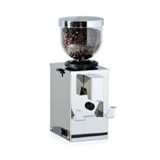
-160x160-state_article-rel-cat.png)
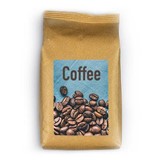

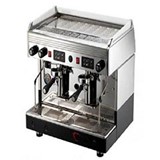
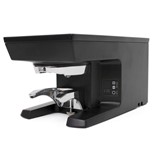


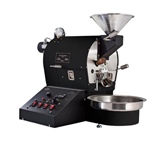

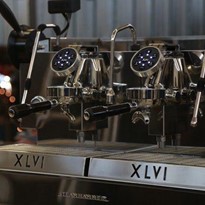
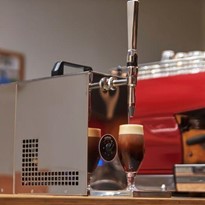




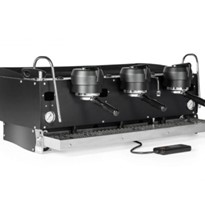
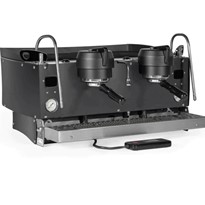



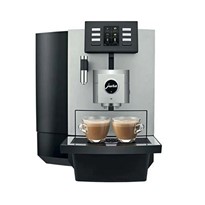

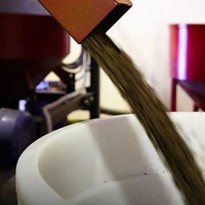
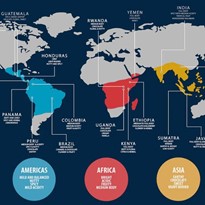

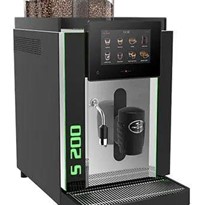
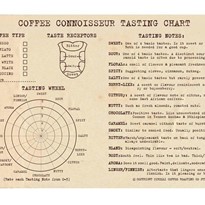
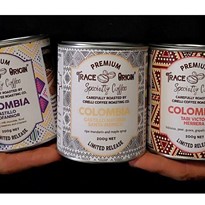
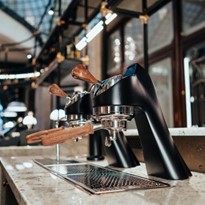
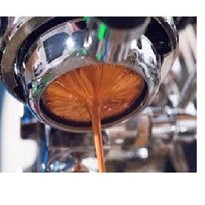

-205x205.jpg)